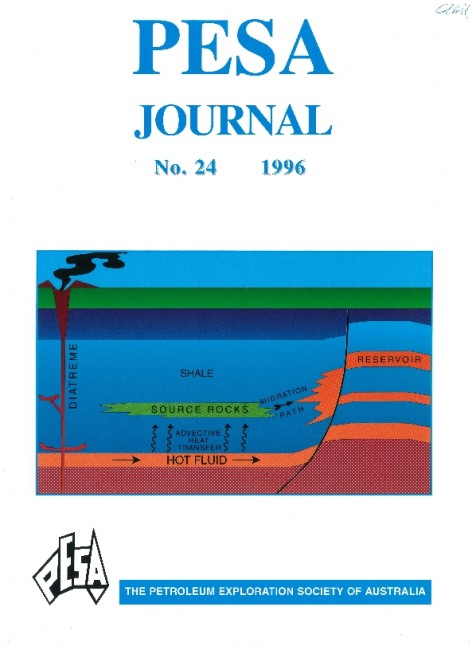Publication Name: PESA Journal No. 24
Authors: R.H. Bruce, M.F. Middleton, P. Holyland, D. Loewenthal and I. Bruner
Publication Volume: 24
Date Published: December 1996
Number of Pages: 8
Reference Type: Journal Article
Abstract:
This paper presents the results of modelling the formation ofpetroleum in the framework of rapid hydrodynamic
processes in sedimentary basins. The study is motivated by
the observation that many Pb-Zn deposits occur within
hydrocarbon prone sedimentary basins, and that expulsion
of hot basinal brines, over a geologically short period, may
contribute significantly to the generation of hydrocarbons.
Modelling of the generation of bitumen by hydrous
pyrolysis shows that peak generation can occur after
approximately 1000 years at a temperature of 200?C.
Hydrothermal modelling of advective heat transfer in a
shaly formation above a hot porous layer, that permits
(relatively) rapid fluid flow, was carried out. The results of
this modelling indicated that with advective flow velocities
in the vicinity of 0.315 rn/yr (which is a reasonable value
within the petrophysical constraints of the model) can
significantly alter the temperature at a distance of some 200
m above the hot layer after 1000 years. It is concluded that
a source bed approximately 200 m above such a hot layer,
and buried 3 km deep within a basin, can attain 200?C, and
thus peak generation, in the vicinity of 1000 years.


